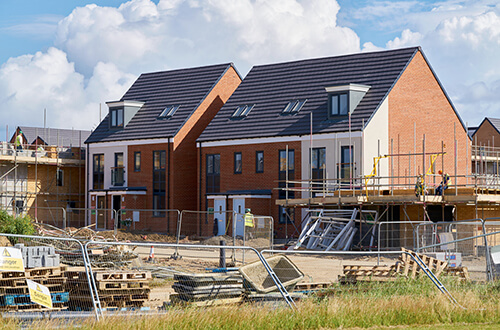The UK government will introduce new rules for Capital Gains Tax (CGT) in April 2023, which will affect separating spouses and civil partners. These changes aim to provide more flexibility for couples to divide their assets without incurring a potential charge to CGT.
Transfer of assets at ‘no gain, no loss’
Currently spouses and civil partners living together can transfer assets between each other with no capital gains tax arising, this treatment known as ‘no gain, no loss’ extends to the end of the tax year of permanent separation. Transfers after this time are subject to capital gains tax in the normal way which provides little flexibility when finalising a divorce.
From 6 April 2023, separating spouses and civil partners will have the opportunity to transfer assets to each other at 'no gain, no loss' for:
- three years after the year in which they stop living together as spouses or civil partners
- any period of time where the transfer occurs as part of a formal divorce agreement.
This new rule means that one spouse takes on all potential tax liability, not just the gain arising on the asset from the date they received it. Therefore, to determine the actual value of assets transferred, couples should consider the inherent gains and losses within those assets.
Extending relief from tax on sale of the former matrimonial home
Currently, when an individual sells or transfers their only or primary residence, they can mitigate tax on any arising capital gains using Private Residence Relief (PRR). However, where one party moves out of the former matrimonial home (FMH) following separation, the leaving spouse's ownership and occupation periods are often no longer aligned. This leaves them exposed (but for a few exceptions) to a potential tax liability on the eventual sale or transfer of the FMH.
From 6 April 2023, the following rules will provide the leaving spouse with additional opportunities to elect how their PRR is appointed between their FMH and any other home since leaving the FMH:
- Spouses and civil partners who retain an interest in their FMH will have an option to claim PRR on that property when it is sold (regardless of when they moved out of it, provided they do not claim PRR on any other property for that same period).
- Individuals who have transferred their interest in the FMH to their ex-spouse or civil partner and are entitled to receive a percentage of the proceeds when that home is eventually sold will be able to apply the same tax treatment to those proceeds when received as applied when they transferred their original interest in the home to their ex-spouse or civil partner.
If you are going through a divorce or separation, it is recommended to seek professional advice to fully understand the implications of these new rules and how they may affect your financial situation. Additionally, it may be beneficial to review and update any existing financial agreements to ensure compliance with the new rules.
If you have any questions about the above, or would like more information specific to your circumstances, please enter your email address below and we will get in touch:
Related View All
















